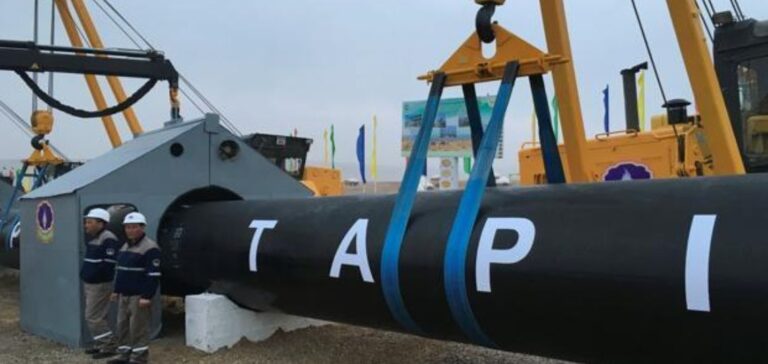Final approval of the TAPI pipeline project, essential for Pakistan’s natural gas supply, is expected in the second quarter of 2024. The TAPI pipeline, an initiative between Turkmenistan, Afghanistan, Pakistan and India, aims to transport 33 billion cubic meters of gas a year from the Galkynysh field in Turkmenistan to the Indian border. Pakistan, faced with a growing demand for natural gas due to its demographic and economic growth, plays a key role in this project.
Implications for Pakistan
Pakistan’s Interstate Gas System, the project’s main partner, will oversee gas imports. The 1,680 km pipeline is strategically planned to avoid densely populated areas and maximize infrastructure safety.
Progress and challenges
Efforts to contact TAPI’s Dubai office were unsuccessful, but project managers Muhammetmyrat Amanov and Myrat Archayev will be speaking at the Turkmen Energy Investment Forum in Paris. This platform will discuss strategies for attracting the investment needed to develop the pipeline.
Economic and energy issues
Turkmenistan is seeking to diversify its natural gas export markets, particularly via pipelines, given its landlocked geography. For Pakistan, this pipeline is crucial to meet the decline in domestic gas production, estimated to last until 2032.
The construction of the TAPI is essential not only for Pakistan’s energy security, but also for regional economic integration. Ensuring the pipeline’s safety, in the face of regional tensions, remains a major challenge.






















